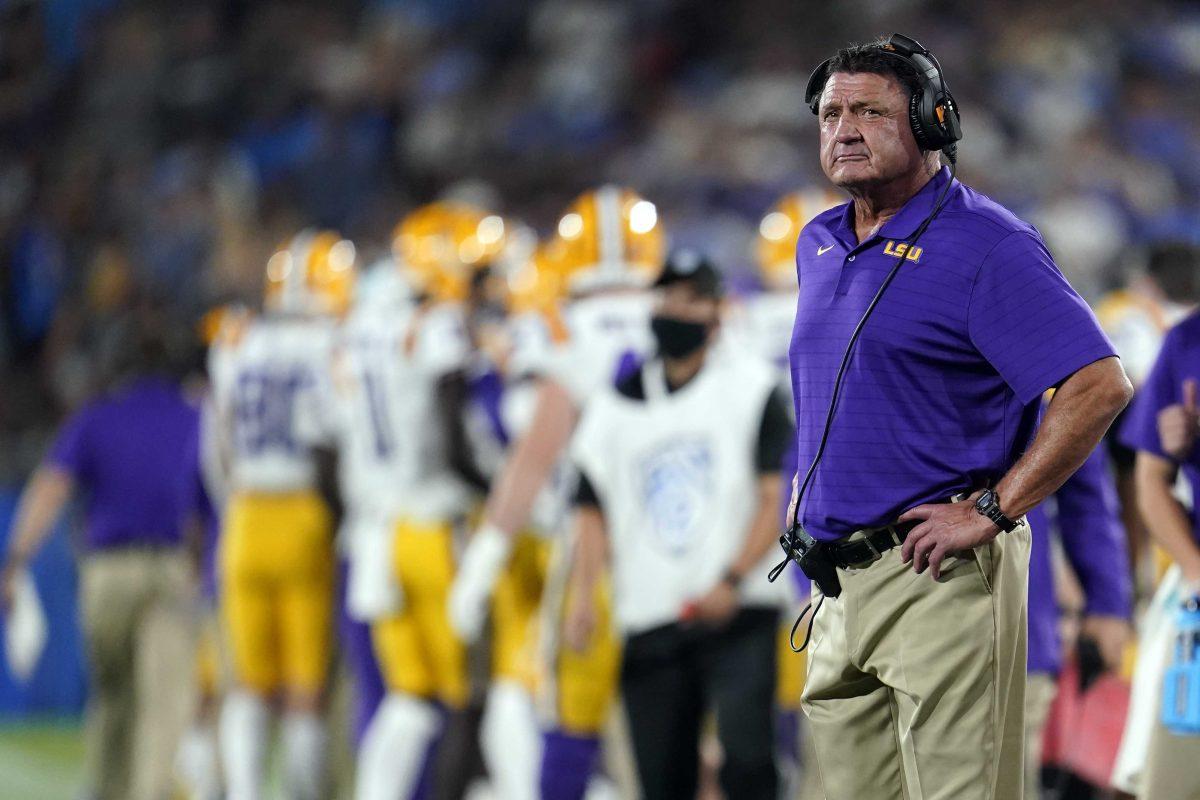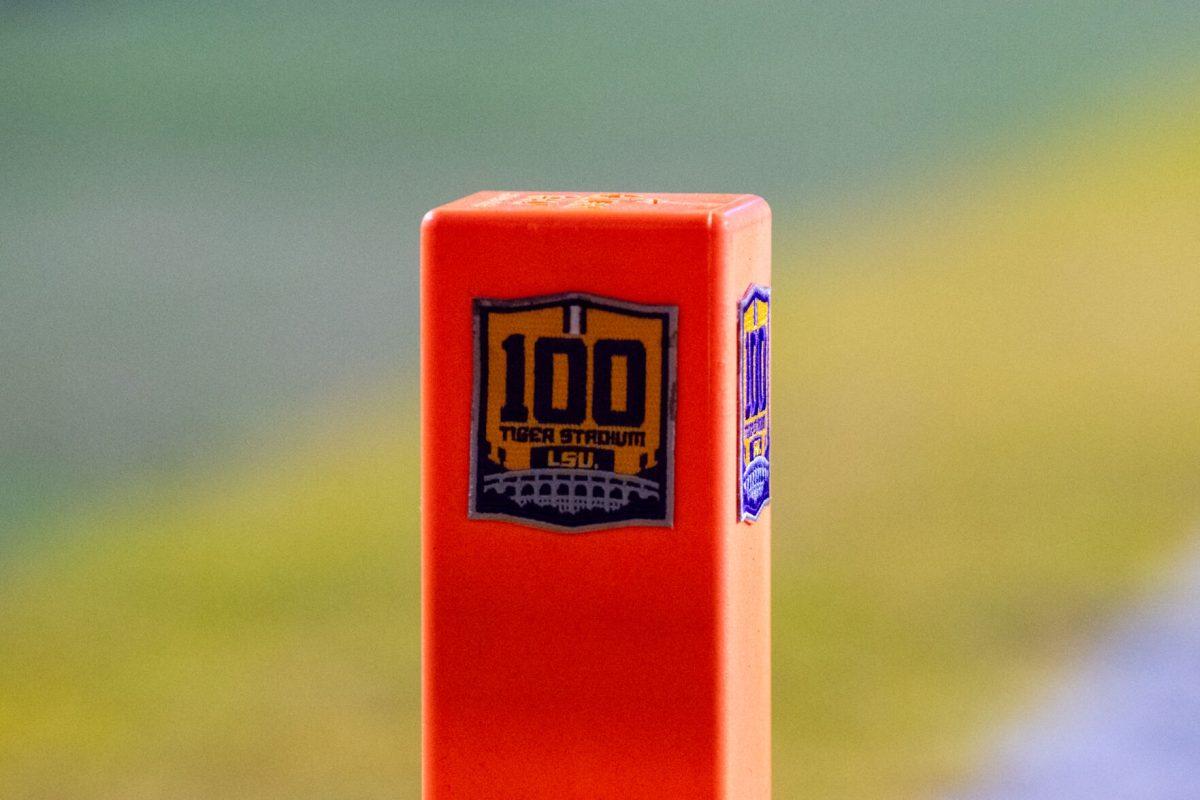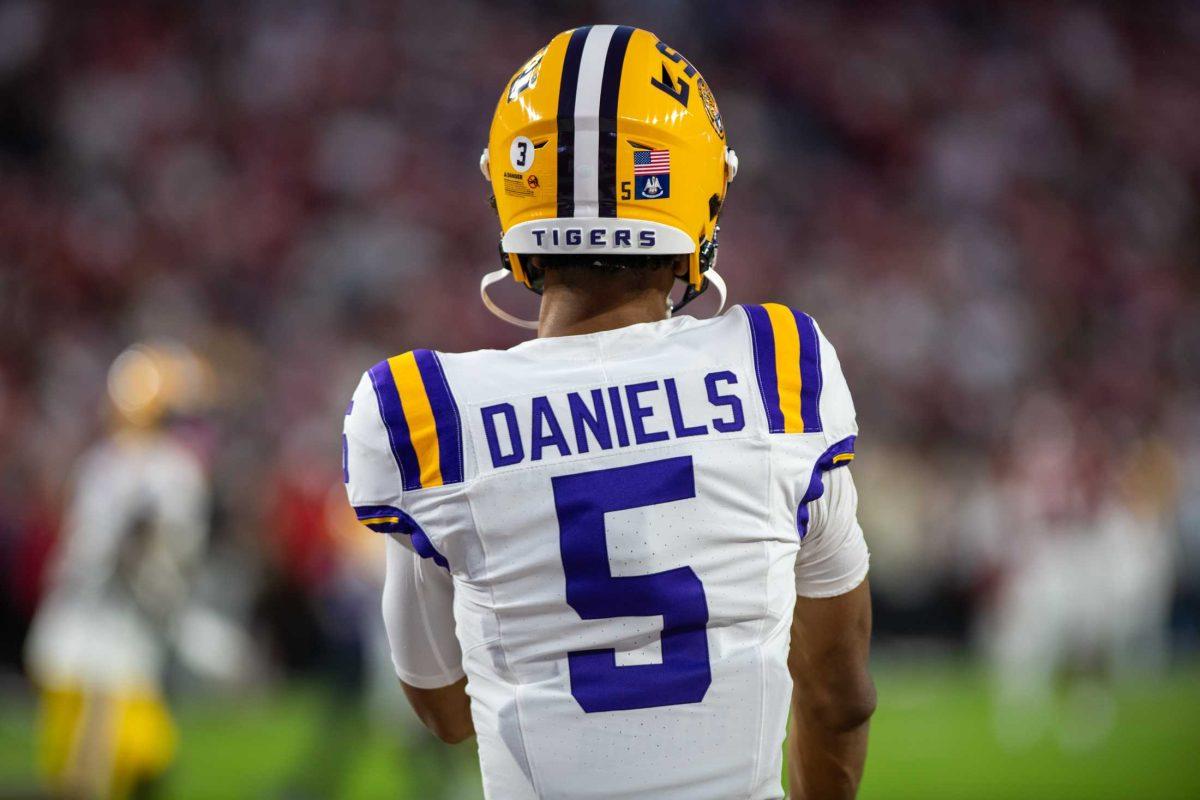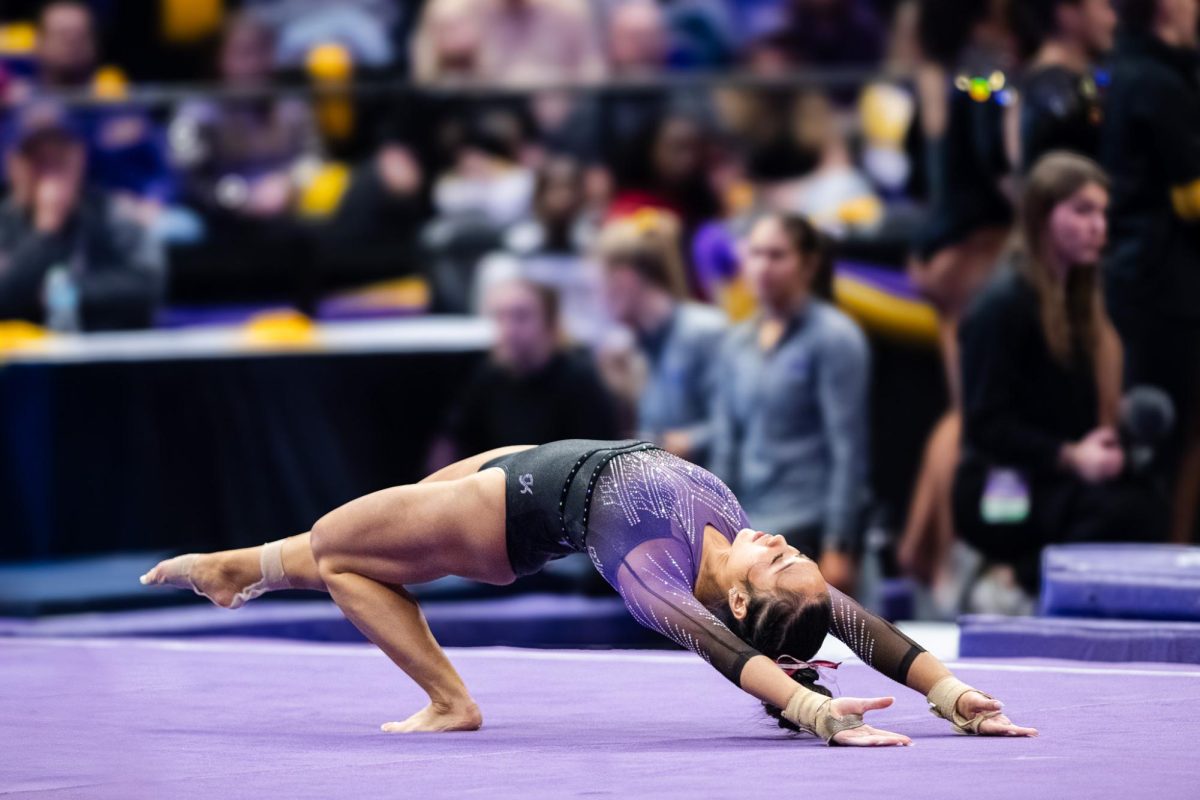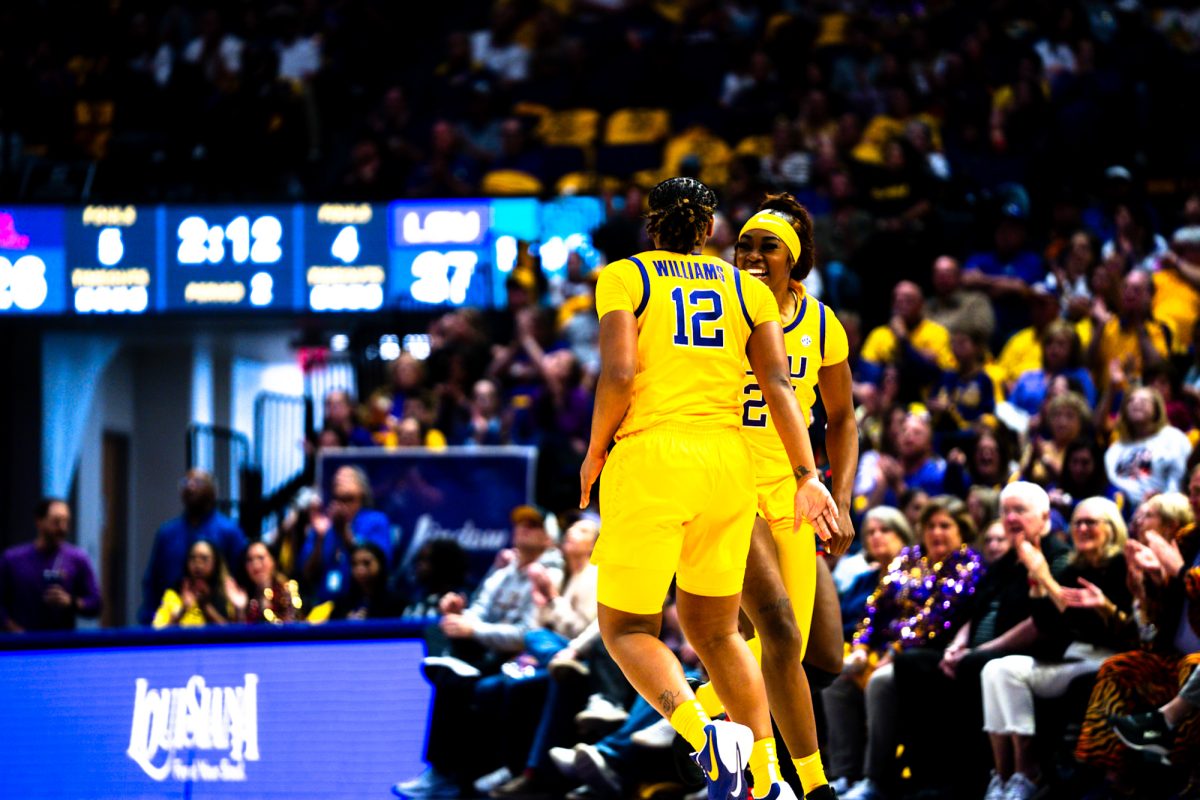Darrin Gienger spent the week before LSU’s humiliating loss to UCLA picking up the pieces of his damaged house down in Houma, Louisiana.
Gienger said he and his family were lucky to emerge from the Category 4 Hurricane Ida with minor ceiling damage, a little water intrusion, a flattened fence and tree debris scattered about his yard. At one point in the cleanup, Gienger stopped collecting the roof shingles in his yard, looked up at his roof and decided to climb it. He had an LSU game to watch.
So Gienger looked up a YouTube tutorial on repairing storm-damaged satellite dishes—he said with a laugh—and with the help of his son Parrish, an LSU student, he tinkered with the dish, turning the antenna until he found a signal.
After a long, hot, sweaty Saturday of lifting tree branches, Gienger worked until sundown then kicked back and fired up his TV, powered by a small generator that also fueled a refrigerator and a one-room AC unit. The picture on the screen was as clear as the post-Ida sky, but the outlook on LSU’s season would be decidedly less so.
“It was about what I was expecting,” Gienger said at halftime of the season opener. “LSU overlooked UCLA.”
The first half was a tale of two quarters. In the opening stanza, the defense was the story. Derek Stingley looked healthier than last year, and the unit as a whole looked stronger, more aggressive. The front seven looked especially stout, and for a fleeting moment, fans thought the unit would live up to its preseason hype.
But in the next three quarters, Stingley disappeared. The Bruins didn’t need to throw anywhere near the All-American corner or his star partner, Eli Ricks: Gashing runs up the middle, short crossing routes and play-action bootlegs would do the trick. UCLA collected a back-breaking 215 yards and two touchdowns on 48 carries.
Ed Orgeron sat down for his post-game press conference and repeated many of the same things he said in 2020 . For the culprits, he again pointed to crossing routes, missed assignments, busted coverages and open gaps, mistakes he had promised to fix after a more focused offseason. Orgeron took the blame.
“It’s my responsibility,” he said. “I told that to the team.”
Gienger’s halftime diagnosis was the linebackers’ speed, or lack thereof, he said. That problem became more apparent in the second half.
On the Bruins’ third-quarter touchdown drive, they ran two receivers on crossing routes. LSU’s two linebackers, Damone Clark and Bugg Strong, miscommunicated. As one receiver crossed over another, it appeared that the defenders were supposed to switch the assignments. Instead, Strong took one wrong step, and the tight end ran by him, leading to an easy completion. A couple of plays later, UCLA was in the endzone, up 21-10.
In the fourth quarter, UCLA running back Zach Charbonnet ripped LSU’s defense for 41 yards. Then on 3rd and 14, Thompson-Robinson connected with his tight end again on a crossing pattern for 19 yards, advancing to the one-yard line. On the next play, UCLA punched it in, going up 31-20.
The dagger came midway through the fourth, when Bruin receiver Kyle Philips ran past Stingley over the middle, secured a perfectly thrown ball, juked safety Jordan Toles to his knees, powered through Stingley’s arm tackle and housed a 45-yard reception.
Post-game, reporters asked star receiver Kayshon Boutte, LSU’s lone bright spot, if Hurricane Ida and the team’s impromptu evacuation to Houston contributed to the Tigers’ sluggish start. Boutte dodged the question, refusing to make excuses for the team’s unexpected loss.
“I’m gonna be honest,” he said. “We just got beat tonight.”
Residents like Gienger and his family will watch the next two games from the same makeshift set-up before they expect power to return to Houma between Sept. 22 and 29, about when LSU begins SEC play. They’ll be rooting for better results and less post-game despair.



